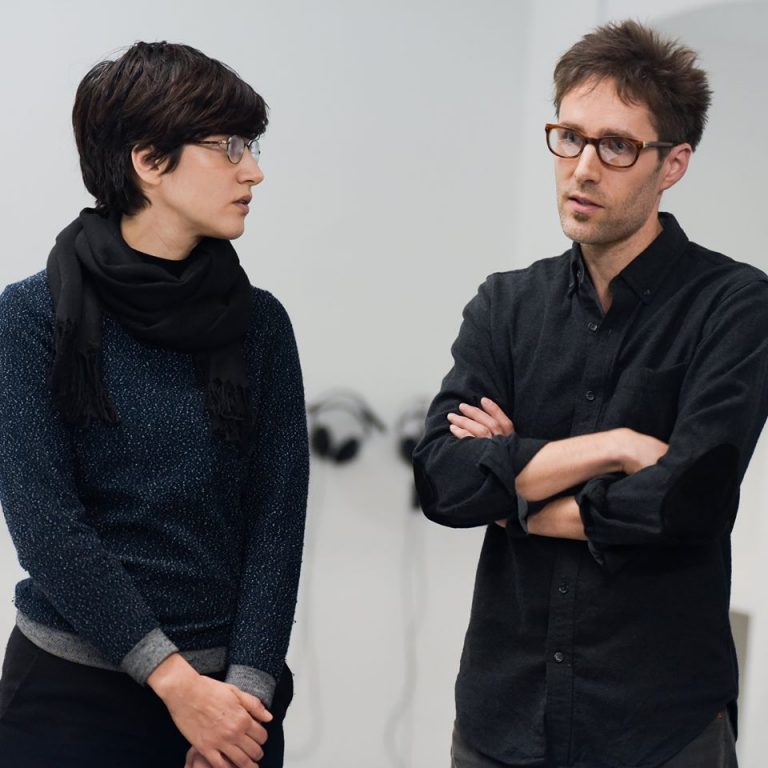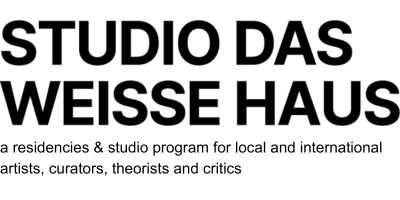Weekly Conversations… with FICTILIS

FICTILIS is an independent curatorial collective based in Oakland, California and founded by Andrea Steves and Timothy Furstnau. They have created projects, curated exhibitions, organized events, and been visiting curators and scholars in a variety of settings, from institutions like Headlands Center for the Arts, Princeton School of Architecture, Science Gallery Dublin, and Parsons School of Design, to various artist-run spaces, vacant buildings, and public streets. FICTILIS were recipients of the 2016 Emily Hall Tremaine Exhibition Award, and recent projects have received support from the Puffin Foundation, Left Tilt Fund, and The New School for Social Research. Their collaborative, research-based work, across many types of media and disciplines, shares ongoing and overlapping interests in language and taxonomy, materialisms and waste flows, monuments and public memory, and political ecology.
You’re bringing Museum of Capitalism for the first time to Europe. How would you explain it to somebody who has no idea what it is? How does it relate to your curatorial practice?
The Museum of Capitalism looks back on capitalism as a historical phenomenon, inviting visitors to experience the realities of life under capitalism through a variety of rotating exhibits, artifacts, and events. The Museum’s collection features objects and installations commissioned and created in collaboration with artists, designers, historians, and more. It is the result of years of curatorial research, and its five+ iterations and two related publications represent the bulk of our curatorial and production work since 2015. The version we are installing upstairs at das weisse house is more of an archive of the Museum’s activities to date — we’re calling it “Archive of the Present” — and will feature a facsimile of many works, past present and future, from the recent activities of the Museum. With limited budget and space, and a goal to minimize the carbon footprint of bringing the museum overseas, we were excited to think about how to represent the project, however incompletely, in a way that is still robust and engaging. We were also particularly excited to present the work as kind of an upstairs annex in conversation with Yoshinori Niwa’s work, which we see as a practice which also attempts to archive of the present in its own way, and is very much interrogating some of the same themes as our work.
What were the main reasons for you to found this kind of insitution?
The archive we present at das weisse haus includes some of our founding notes and inspirations, so we don’t want to give too much away. But as we say in several texts included in the exhibition, the idea came from reading a talk by the political theorist Alex Callinicos in which he describes a visit to the Museum of Apartheid in South Africa. He describes the powerful effect of walking into a space where Apartheid, something he once assumed was “part of the permanent furniture of the world,” was reduced to objects in a museum. In the talk, Callinicos goes on to describe how he imagines one day going to a museum of capitalism. Reading this account, we were immediately struck by the power that “putting something in a museum” has, the way in which a museum immediately legitimizes a narrative.
We started to think about what it would be to use the museum as a weapon, as something to assert and build a narrative that we want to see in the world.
We should say that there is an element of intentional untimeliness inherent in making a Museum of Capitalism now, in the sense that is is appearing “too soon,” or sooner than many consider appropriate. (We think it’s not soon enough, if not too late.) But apart from believing certain things can get better, even as other things get worse, we don’t presume to know how history will work out. So we’ll leave it to future generations to assess the timeliness of what we’re doing now.
Our curatorial approach with the project has been to make visible the connections between capitalism and other “isms” — environmentalism, racism, consumerism — issues that are inextricably linked to capitalism.
On February 1st, you will host a Round Table Discussion together with Samuel Hus, Dubravka Sekulić, Julia Wieger and Seth Weiner. What are you and your guests bringing to the table? What kind of matters, questions, urgencies will you discuss?
We met Dubravka, who will moderate the discussion, at HKW’s The Whole Life academy last year in Dresden, where we were tutors for academy sessions dealing with similar questions around the theory and practice of archives. We each invited a local artist whose work prompts urgent questions around the politics of archival work. They bring to the discussion a rich variety of experiences working within and between different kinds of archives—particularly ones that have what we might call troubled temporalities – pasts that still haunt them, or ambiguous spatial presence – existing in some liminal location. Our discussion will touch upon the role of archives in making history, the politics of this kind of historiography, and other questions of ownership, inheritance, and management of archival collections. This may mean getting into some of our own deeply personal and conflicted involvements with archival materials and institutions.
